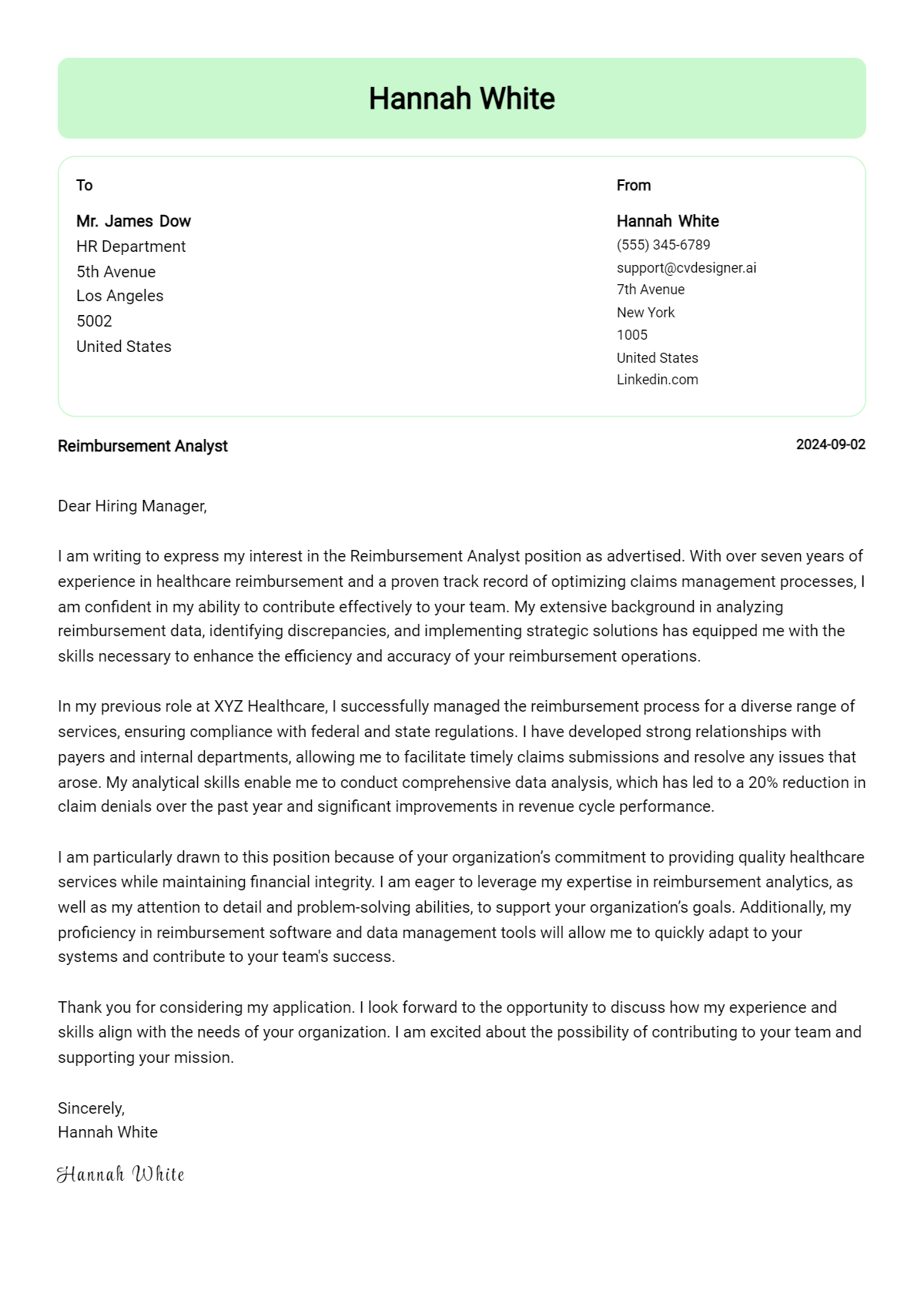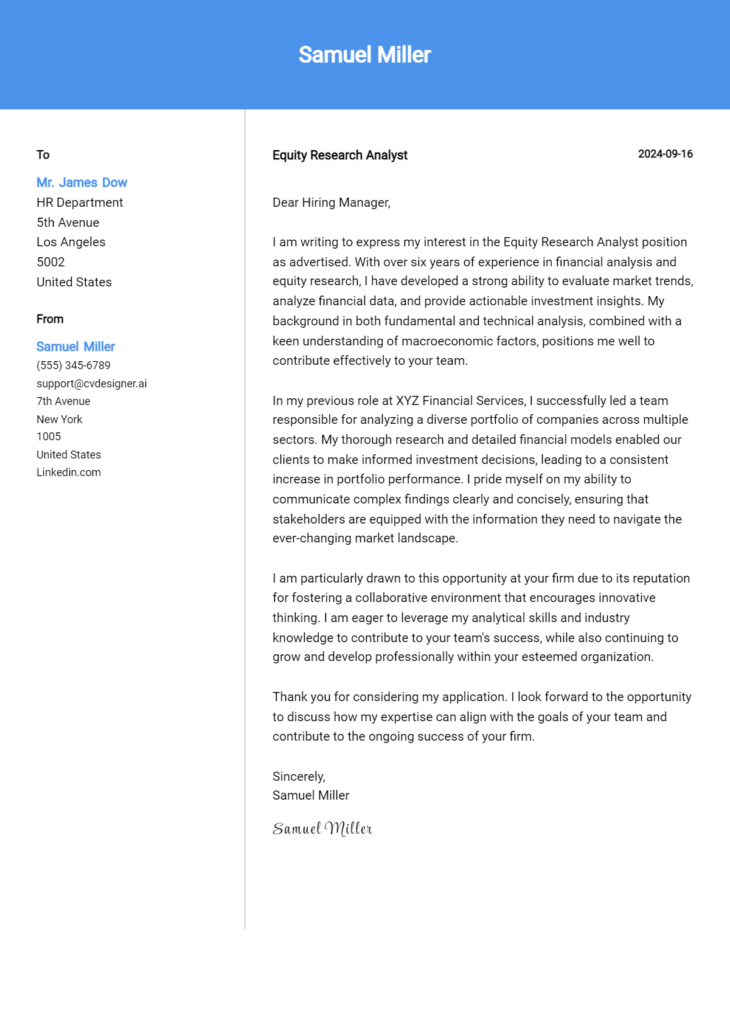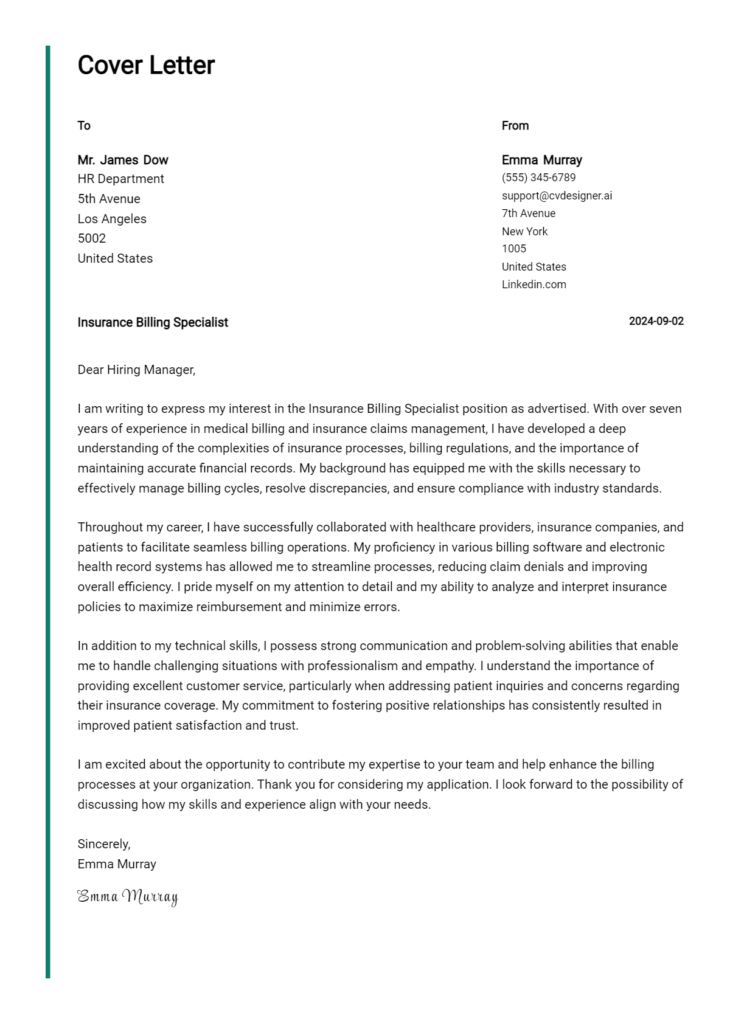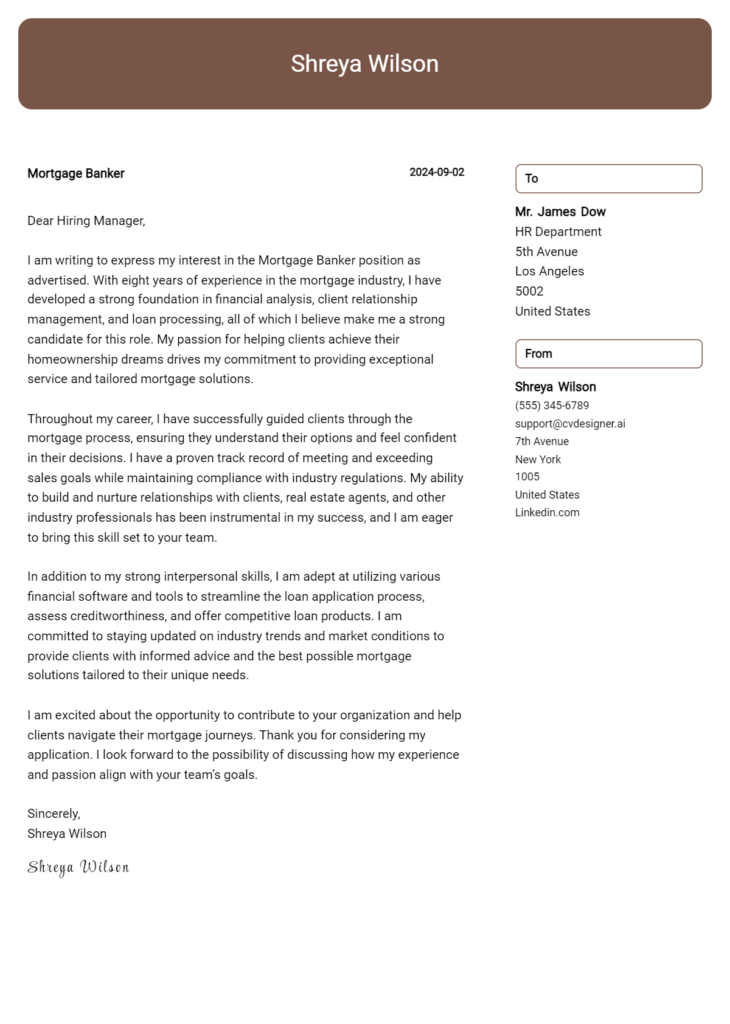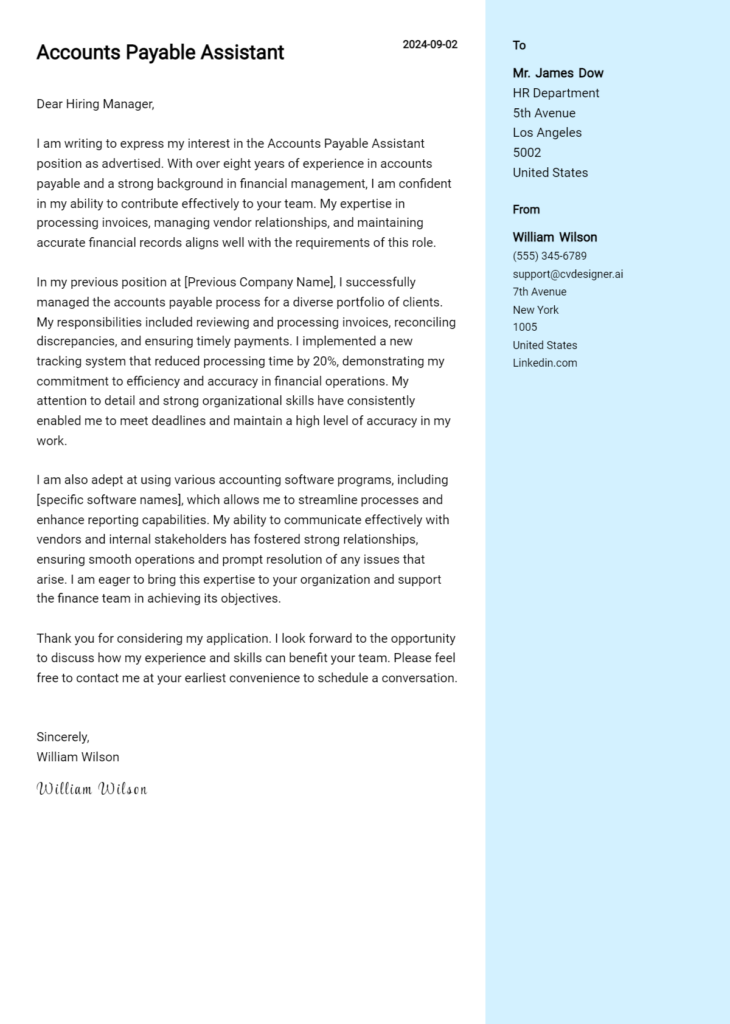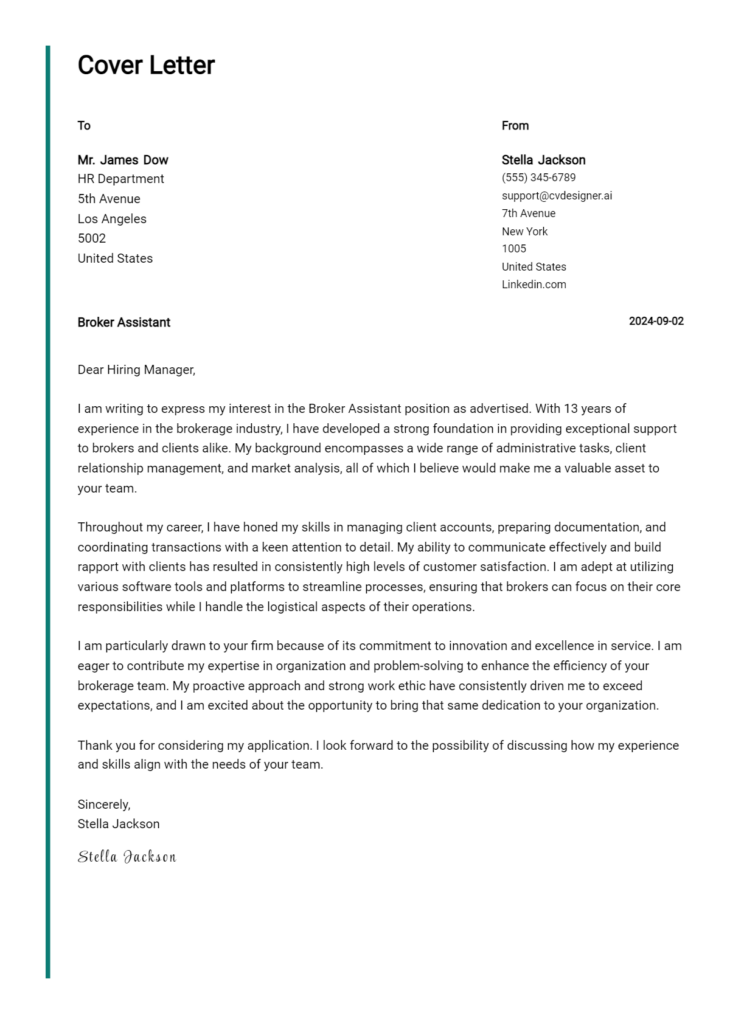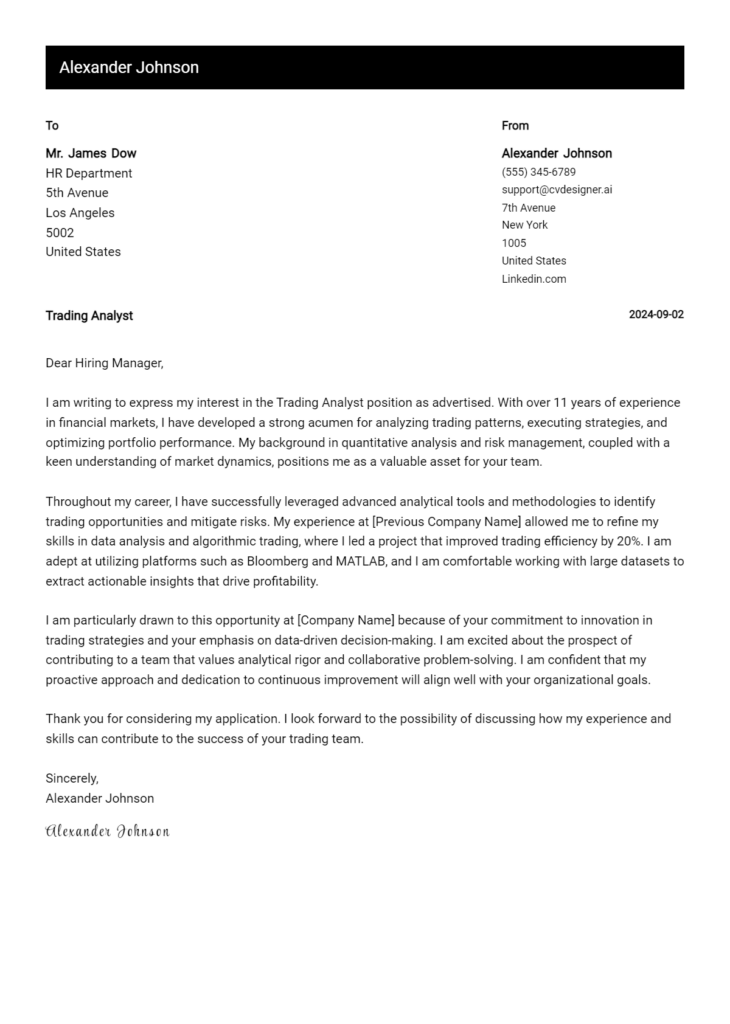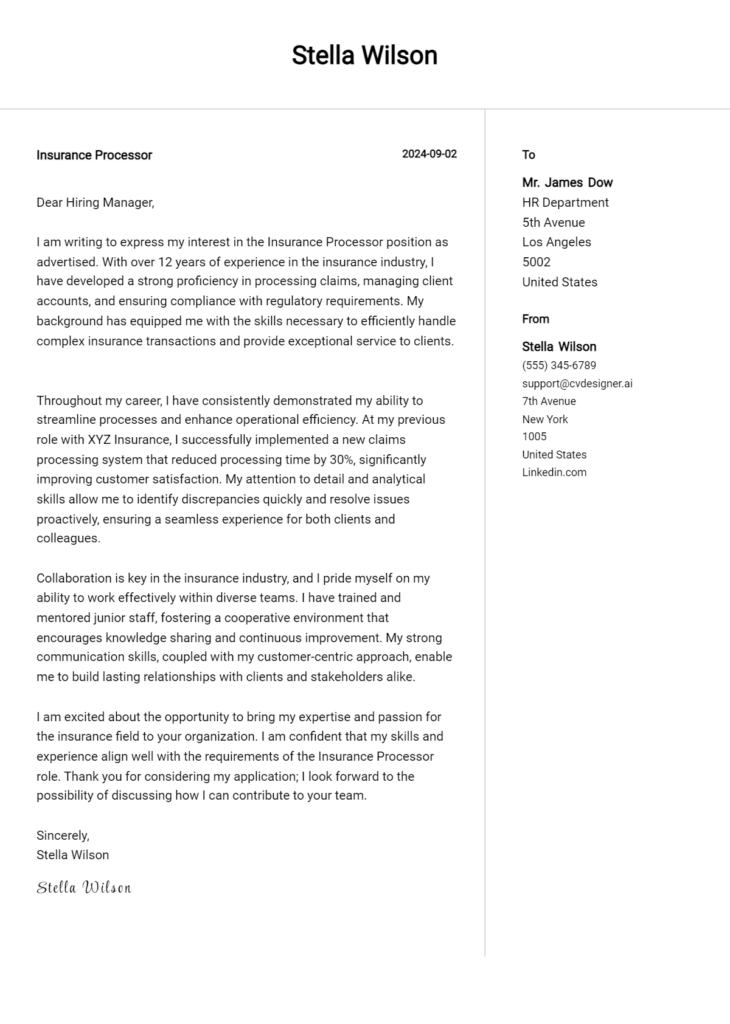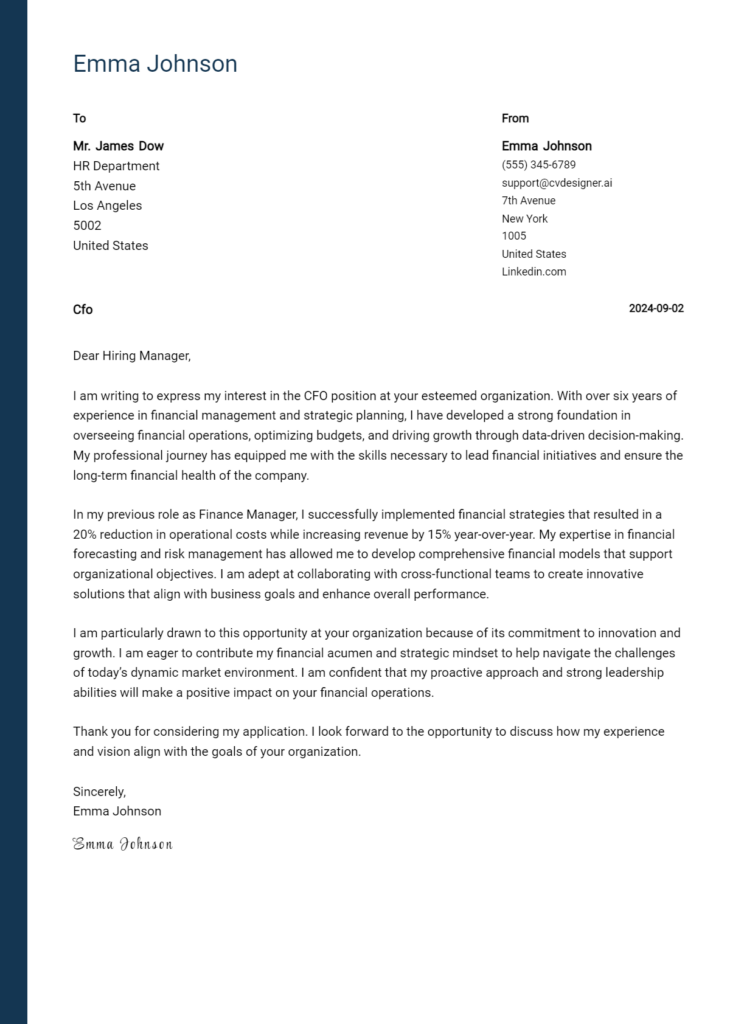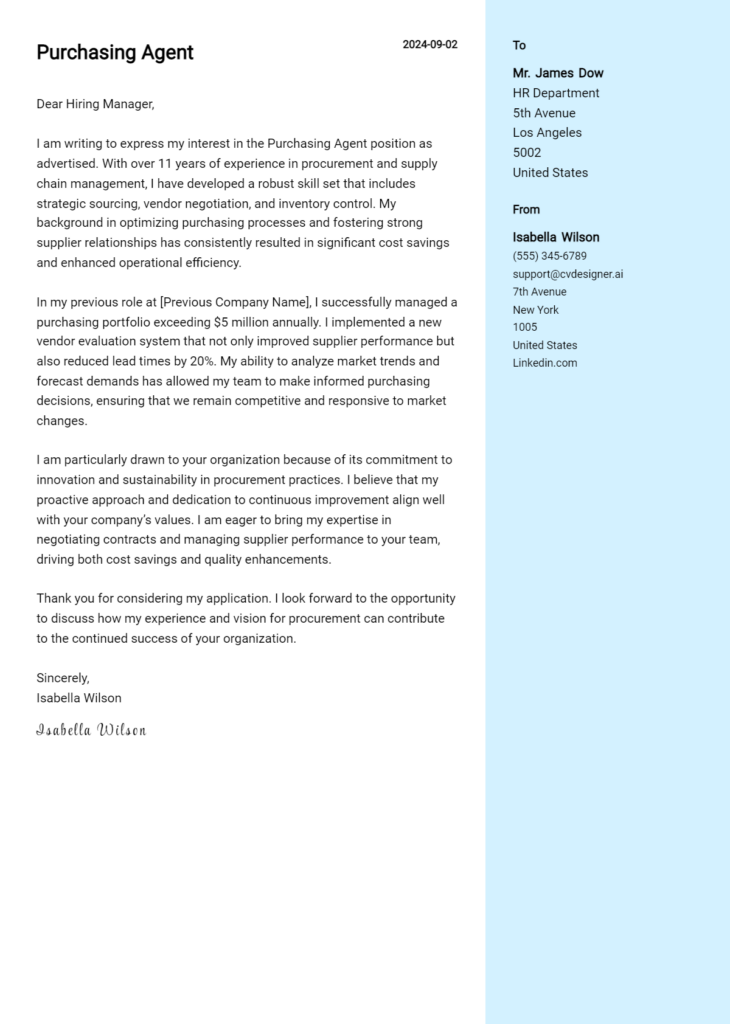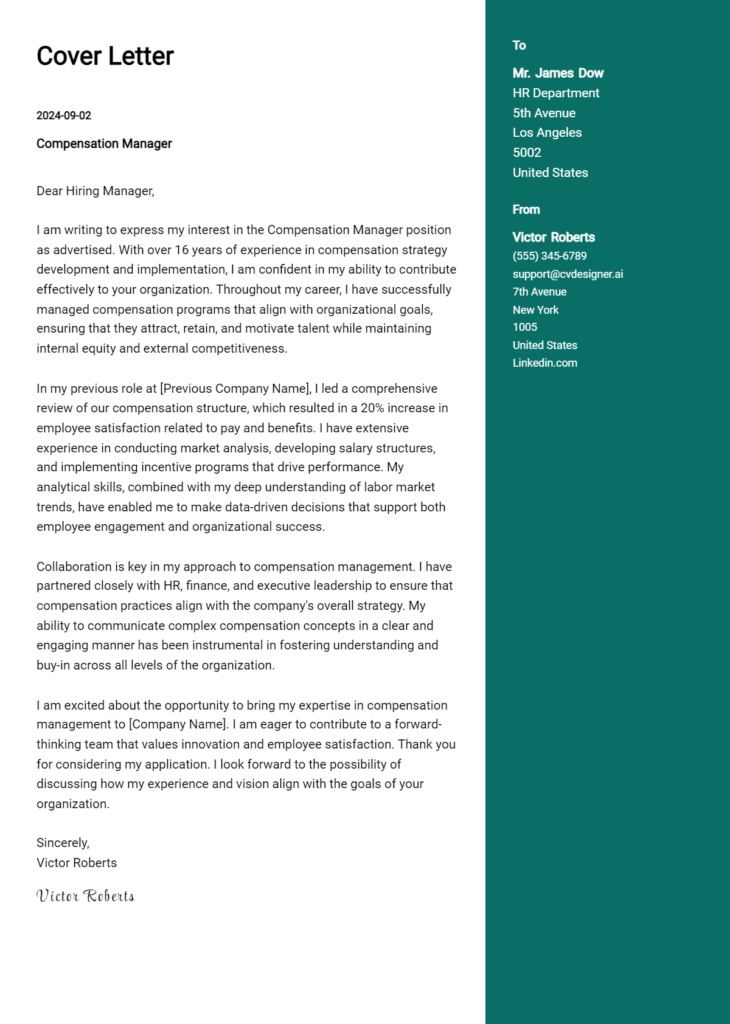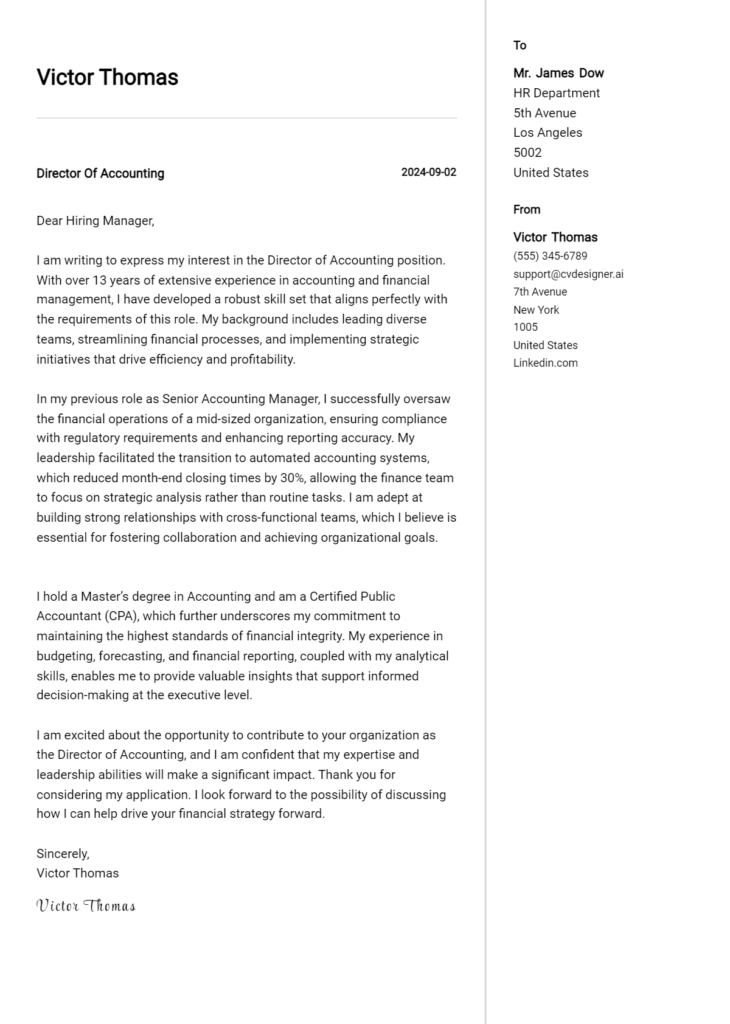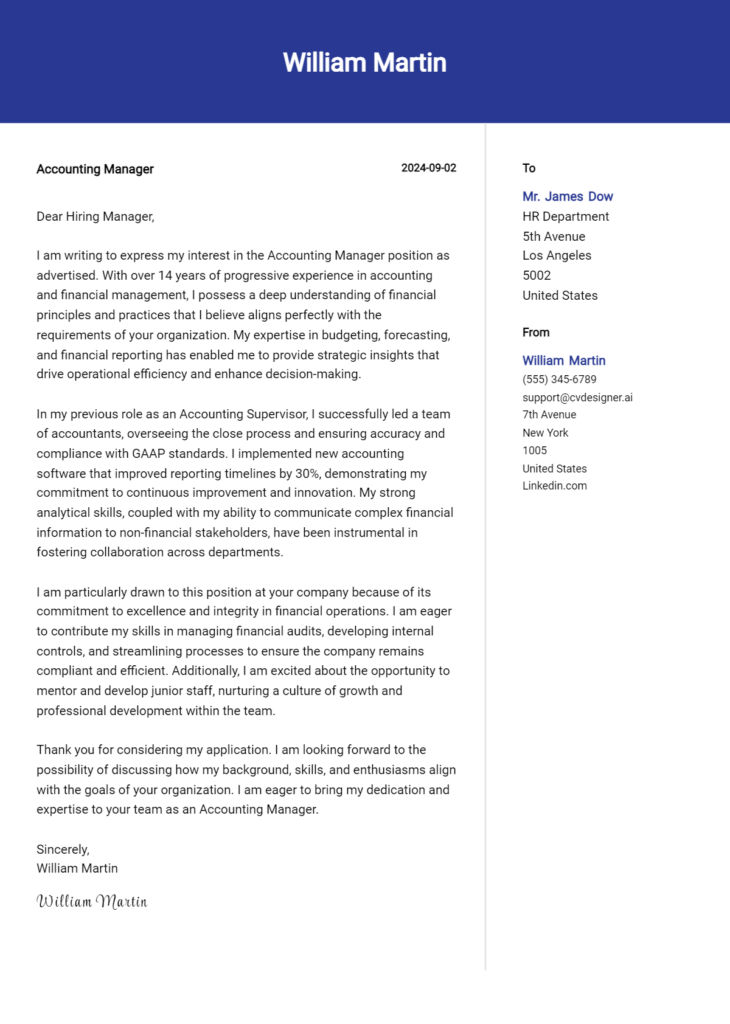Most Popular Reimbursement Analyst Cover Letter Examples
Explore additional Reimbursement Analyst cover letter samples and guides and see what works for your level of experience or role.
As the healthcare industry evolves, the role of a Reimbursement Analyst has become increasingly vital, serving as the bridge between providers and payers to ensure accurate billing and reimbursement processes. Crafting an effective cover letter is your first step towards securing a position in this dynamic field. In this comprehensive guide, we will delve into the essential elements of a standout cover letter tailored specifically for Reimbursement Analysts. From highlighting your analytical skills to articulating your understanding of the reimbursement landscape, every detail matters. By the end of this article, you'll be equipped with actionable tips and a compelling cover letter example that can set you apart from the competition.
- Understanding the key responsibilities of a Reimbursement Analyst
- Essential skills and qualifications to highlight in your cover letter
- Tips for personalizing your cover letter for maximum impact
- Examples of strong opening and closing statements
- Common mistakes to avoid when writing your cover letter
- A complete cover letter example tailored for a Reimbursement Analyst position
What does a Reimbursement Analyst Cover Letter accomplish?
A cover letter for a Reimbursement Analyst plays a crucial role in showcasing the candidate's qualifications and understanding of the healthcare reimbursement landscape. It serves as an opportunity to highlight relevant skills, such as analytical thinking and attention to detail, while demonstrating how previous experiences align with the job requirements. Additionally, a well-crafted cover letter can convey the candidate's enthusiasm for the position and the organization, making a strong first impression on potential employers. By following a comprehensive cover letter guide and utilizing a cover letter builder, applicants can ensure they effectively articulate their value and stand out in a competitive job market.
Key Components of a Reimbursement Analyst Cover Letter
- Introduction and Purpose: Start by clearly stating the position you are applying for and expressing your enthusiasm for the role. Mention how your background aligns with the requirements of a Reimbursement Analyst, highlighting any relevant experience or skills.
- Relevant Experience and Skills: Detail your experience in the healthcare or financial sectors, particularly focusing on roles involving reimbursement processes, claims management, or data analysis. Use specific examples to demonstrate your expertise and how it will benefit the prospective employer.
- Knowledge of Regulations and Compliance: Highlight your understanding of healthcare regulations, reimbursement policies, and compliance issues. This is crucial for a Reimbursement Analyst, as it shows your ability to navigate complex guidelines and ensure accurate reimbursement practices.
- Call to Action and Closing Statement: Conclude with a strong closing statement that reinforces your interest in the position and prompts the hiring manager to take action, such as inviting you for an interview. You can also include a brief mention of your attached resume and express your eagerness to discuss your qualifications further.
For more insights, you can explore cover letter examples and learn about cover letter format.
How to Format a Reimbursement Analyst Cover Letter
When crafting a cover letter for a Reimbursement Analyst position, it’s essential to highlight your analytical skills, attention to detail, and familiarity with healthcare reimbursement processes. Tailor your letter to reflect your experience and enthusiasm for the role, ensuring you demonstrate how your qualifications align with the needs of the employer.
- Begin with a strong opening that states your interest in the position and briefly mentions your relevant experience.
- Highlight your educational background, especially if you have a degree in finance, healthcare administration, or a related field.
- Mention your experience with coding systems and familiarity with billing software, showcasing your technical skills.
- Emphasize your analytical abilities by providing examples of how you have successfully identified discrepancies in reimbursement or claims.
- Discuss your understanding of healthcare regulations and compliance standards that affect reimbursement processes.
- Include any experience you have working with insurance companies or third-party payers to resolve claims issues.
- Showcase your attention to detail by mentioning your ability to manage large volumes of data while maintaining accuracy.
- Illustrate your problem-solving skills by sharing a specific instance where you effectively addressed a reimbursement challenge.
- Convey your ability to communicate effectively with various stakeholders, including healthcare providers and finance teams.
- Conclude with a strong closing statement that reiterates your enthusiasm for the role and your desire to contribute to the organization’s success.
Reimbursement Analyst Entry-Level Cover Letter Example #1
I am writing to express my interest in the Reimbursement Analyst position at [Company Name], as advertised on [where you found the job listing]. With a strong educational background in finance and healthcare administration, coupled with my internship experience in medical billing, I am eager to contribute to your team and help streamline reimbursement processes.
During my internship with [Previous Internship Company Name], I gained hands-on experience in analyzing healthcare reimbursement data, where I assisted in reviewing claims for accuracy and compliance with regulations. This role allowed me to develop a keen eye for detail and an analytical mindset, as I worked closely with billing software to identify discrepancies and resolve issues promptly. My ability to communicate effectively with team members and healthcare providers ensured that we maintained a high standard of accuracy and compliance, which I believe is critical in a reimbursement analyst role.
Additionally, I completed coursework in health economics and financial management, which has equipped me with a strong understanding of the healthcare reimbursement landscape. I am proficient in data analysis tools and have experience using Excel to create detailed reports that summarize trends and insights. My academic projects have also involved conducting research on reimbursement policies and their impact on healthcare delivery, further enhancing my knowledge of the industry.
I am excited about the opportunity to bring my skills and enthusiasm to [Company Name]. I am particularly impressed by [specific aspect of the company or its mission], and I am eager to contribute to your team’s efforts in optimizing reimbursement processes. Thank you for considering my application. I look forward to the possibility of discussing how I can support your organization in achieving its goals.
Reimbursement Analyst Mid-Level Cover Letter Example #2
I am writing to express my interest in the Reimbursement Analyst position at [Company Name], as advertised on [Job Board/Company Website]. With over five years of experience in healthcare reimbursement and a strong analytical background, I am confident in my ability to contribute effectively to your team and help optimize your reimbursement processes.
In my previous role at [Previous Company Name], I was responsible for analyzing claims data, identifying discrepancies, and working closely with billing teams to resolve issues efficiently. By implementing a new tracking system for denied claims, I improved our response time by 30%, which not only expedited revenue recovery but also enhanced our overall client satisfaction. My ability to scrutinize complex data sets and communicate findings to both technical and non-technical stakeholders has been pivotal in driving process improvements and ensuring compliance with regulatory guidelines.
Additionally, my experience in utilizing reimbursement software such as [Specific Software] has equipped me with the technical skills necessary to streamline operations and enhance accuracy in reporting. I have successfully collaborated with cross-functional teams to develop training programs that improved billing accuracy and reduced claim denials by 15%. My proactive approach in addressing potential reimbursement issues has consistently contributed to maintaining strong relationships with payers and ensuring timely payments.
I am particularly drawn to [Company Name] due to its commitment to innovation and quality in healthcare services. I am excited about the opportunity to bring my expertise in reimbursement analysis and process optimization to your organization. I am eager to contribute to your team and help drive efficiencies that align with [Company Name]'s goals.
Thank you for considering my application. I look forward to the opportunity to discuss how my skills and experiences align with the needs of your team. I am excited about the possibility of contributing to [Company Name] and am available for an interview at your earliest convenience.
Reimbursement Analyst Experienced Cover Letter Example #3
I am writing to express my interest in the Reimbursement Analyst position at [Company Name], as advertised on [where you found the job listing]. With over [number] years of experience in the healthcare reimbursement field, I have developed a comprehensive understanding of reimbursement processes, payer regulations, and the complexities of claims management. My proven track record in optimizing reimbursement strategies and enhancing revenue cycle efficiency positions me as a strong candidate for this role.
In my previous role at [Previous Company Name], I successfully managed a portfolio of reimbursement accounts, where I implemented best practices that improved claim approval rates by [percentage] within the first year. My ability to analyze reimbursement data and identify trends allowed my team to proactively address potential issues, resulting in a [percentage] reduction in claim denials. Additionally, I collaborated closely with cross-functional teams, including billing, coding, and finance, to ensure alignment in our strategies and enhance overall financial performance.
Furthermore, my expertise in navigating complex payer landscapes and understanding the nuances of various reimbursement models has been crucial in securing optimal outcomes for both the organization and our patients. I have maintained up-to-date knowledge of regulatory changes and have trained team members on new compliance requirements, fostering a culture of continuous improvement within the department. My analytical skills, combined with my attention to detail, have proven invaluable in conducting audits and ensuring adherence to payer requirements.
I am particularly drawn to the opportunity at [Company Name] because of your commitment to [specific aspect of the company or its mission]. I am eager to bring my experience in developing innovative reimbursement solutions and my passion for optimizing financial performance to your esteemed organization. I am confident that my background and skills will enable me to make a significant contribution to your team.
Thank you for considering my application. I look forward to the opportunity to discuss how my experience and vision align with the goals of [Company Name]. I am excited about the possibility of contributing to your team and am available at your earliest convenience for an interview.
Cover Letter Tips for Reimbursement Analyst
When crafting a cover letter for a Reimbursement Analyst position, it's essential to tailor your message to highlight your analytical skills, attention to detail, and understanding of healthcare reimbursement processes. Begin by introducing yourself and expressing your enthusiasm for the role, while aligning your experience with the specific requirements listed in the job description. Use concrete examples to demonstrate your expertise in coding, billing, or claims processing, and emphasize your ability to navigate complex regulations and resolve discrepancies efficiently. Remember to convey your passion for supporting healthcare providers and ensuring that patients receive the financial assistance they need.
Specific Tips for Writing a Cover Letter as a Reimbursement Analyst:
- Personalize Your Greeting: Address the hiring manager by name if possible, to create a connection and show your interest in the specific organization.
- Highlight Relevant Experience: Focus on your previous roles that involved reimbursement, coding, or claims management. Use specific metrics or accomplishments to showcase your success.
- Demonstrate Analytical Skills: Emphasize your ability to analyze data, identify trends, and resolve issues related to reimbursements, which is crucial for this role.
- Show Knowledge of Regulations: Mention your familiarity with healthcare regulations, compliance standards, and payer policies to demonstrate your expertise in the reimbursement field.
- Include Problem-Solving Examples: Provide examples of how you've successfully resolved reimbursement discrepancies or improved processes in past roles.
- Express Your Commitment to Accuracy: Highlight your attention to detail and commitment to ensuring accurate and timely reimbursement, which is vital in the healthcare industry.
- Use Professional Language: Maintain a formal tone and use industry-specific terminology to convey your professionalism and understanding of the field.
- End with a Strong Closing Statement: Reiterate your enthusiasm for the position and express your desire to contribute positively to the organization, inviting them to discuss your application further.
How to Start a Reimbursement Analyst Cover Letter
As you begin your cover letter for a Reimbursement Analyst position, it's important to create a strong first impression that highlights your qualifications and enthusiasm for the role. Here are some effective introductory paragraphs to inspire you:
I am excited to apply for the Reimbursement Analyst position at [Company Name] as advertised on [Where You Found the Job Posting]. With a solid background in healthcare finance and a keen eye for detail, I am confident in my ability to streamline reimbursement processes and enhance financial outcomes for your organization.
Having worked in the healthcare industry for over [X years], I have developed a comprehensive understanding of reimbursement methodologies and claims processing. I am eager to bring my expertise to [Company Name] and contribute to your mission of providing exceptional service while ensuring compliance and accuracy in all financial transactions.
I am writing to express my interest in the Reimbursement Analyst role at [Company Name]. My extensive experience in data analysis and my proficiency in managing complex reimbursement issues align perfectly with your needs, and I am eager to help drive financial efficiency within your team.
With a passion for healthcare and a strong analytical background, I was thrilled to discover the Reimbursement Analyst opportunity at [Company Name]. I have successfully navigated the challenges of reimbursement processes and am excited about the chance to leverage my skills to support your organization in achieving its financial goals.
I am drawn to the Reimbursement Analyst position at [Company Name] because of your commitment to innovative healthcare solutions. With a proven track record in reimbursement analysis and a dedication to accuracy and compliance, I am well-prepared to make a positive impact on your financial operations.
How to Close a Reimbursement Analyst Cover Letter
As you wrap up your cover letter for the Reimbursement Analyst position, it's crucial to leave a lasting impression that reinforces your enthusiasm and qualifications. Here are a few effective closing statements:
“I am eager to bring my analytical skills and my commitment to accuracy to your team. I look forward to the opportunity to discuss how I can contribute to the success of your organization.”
“Thank you for considering my application. I am excited about the possibility of working at [Company Name] and contributing to your mission of delivering exceptional healthcare services.”
“I appreciate your time and consideration. I am confident that my background in reimbursement processes will allow me to make a significant impact at [Company Name], and I look forward to the chance to discuss this further.”
“I am enthusiastic about the possibility of joining your team and leveraging my expertise in reimbursement analysis to help streamline processes and improve financial outcomes. I hope to discuss my application with you soon.”
Common Mistakes to Avoid in a Reimbursement Analyst Cover Letter
When applying for a position as a Reimbursement Analyst, a well-crafted cover letter can make a significant difference in capturing the attention of hiring managers. This document serves as your opportunity to showcase your relevant skills, experience, and understanding of the reimbursement process. However, many candidates make critical mistakes that can undermine their chances of success. Avoiding these common pitfalls can enhance your cover letter and help you present yourself as a strong candidate for the role.
- Neglecting to tailor the letter: Sending a generic cover letter that doesn’t address the specific job or company can signal a lack of interest or effort.
- Ignoring the job description: Failing to highlight relevant skills and experiences that match the requirements outlined in the job description can make your application less compelling.
- Using jargon or overly technical language: While industry knowledge is important, using excessive jargon can alienate the reader and obscure your key points.
- Lack of a clear structure: A disorganized cover letter can be hard to read and follow, making it difficult for the hiring manager to understand your qualifications.
- Making spelling and grammatical errors: Typos and grammatical mistakes can give the impression of carelessness and undermine your professionalism.
- Focusing too much on responsibilities instead of achievements: Employers want to see what you’ve accomplished in your previous roles, not just a list of your duties.
- Being overly formal or too casual: Striking the right tone is crucial; being too formal can come off as stiff, while being too casual can appear unprofessional.
- Excessive length: Cover letters should be concise; aim to keep it to one page and focus on the most relevant details.
- Failing to include a call to action: Not expressing enthusiasm for the position or failing to indicate your desire for an interview can leave the reader with a lack of clarity on your intentions.
- Not showcasing soft skills: While technical skills are critical for a Reimbursement Analyst, neglecting to mention interpersonal skills can overlook important attributes desired by employers.
Key Takeaways for a Reimbursement Analyst Cover Letter
In conclusion, a well-crafted cover letter for a Reimbursement Analyst position should emphasize your analytical skills, attention to detail, and understanding of reimbursement processes. Highlighting relevant experiences and showcasing your ability to navigate complex healthcare regulations will help set you apart from other candidates. Remember to tailor your cover letter to the specific job description, showcasing how your background aligns with the needs of the organization. Utilizing cover letter templates can provide you with a strong foundation, ensuring your letter is both professional and impactful.
Furthermore, employing a cover letter builder can streamline the writing process, allowing you to focus on conveying your qualifications and enthusiasm for the role. By integrating these resources, you can create a compelling narrative that not only highlights your skills but also demonstrates your commitment to contributing positively to the organization. A well-structured cover letter can be your ticket to landing an interview and advancing your career as a Reimbursement Analyst.
